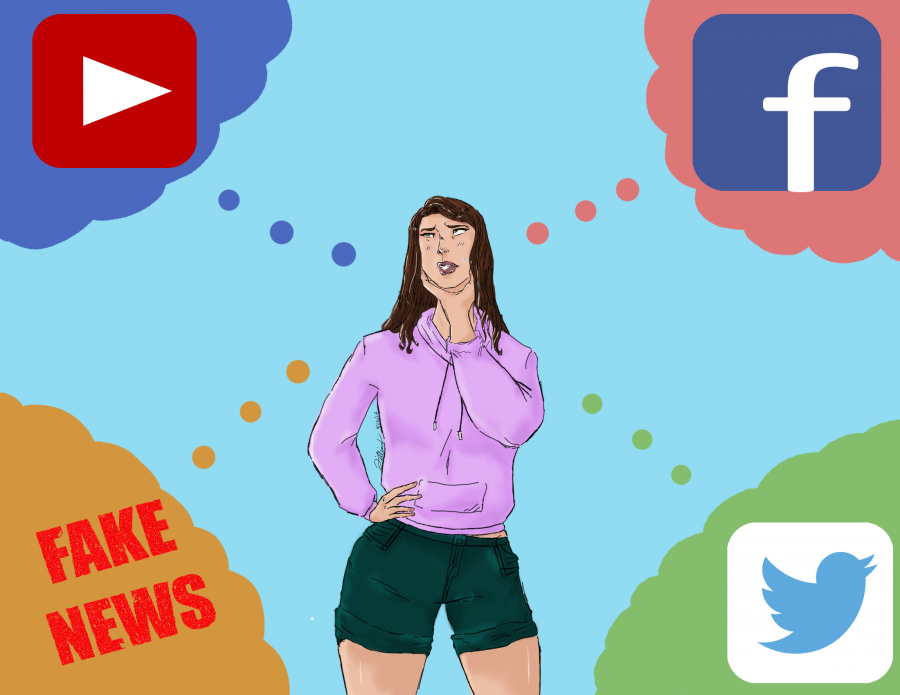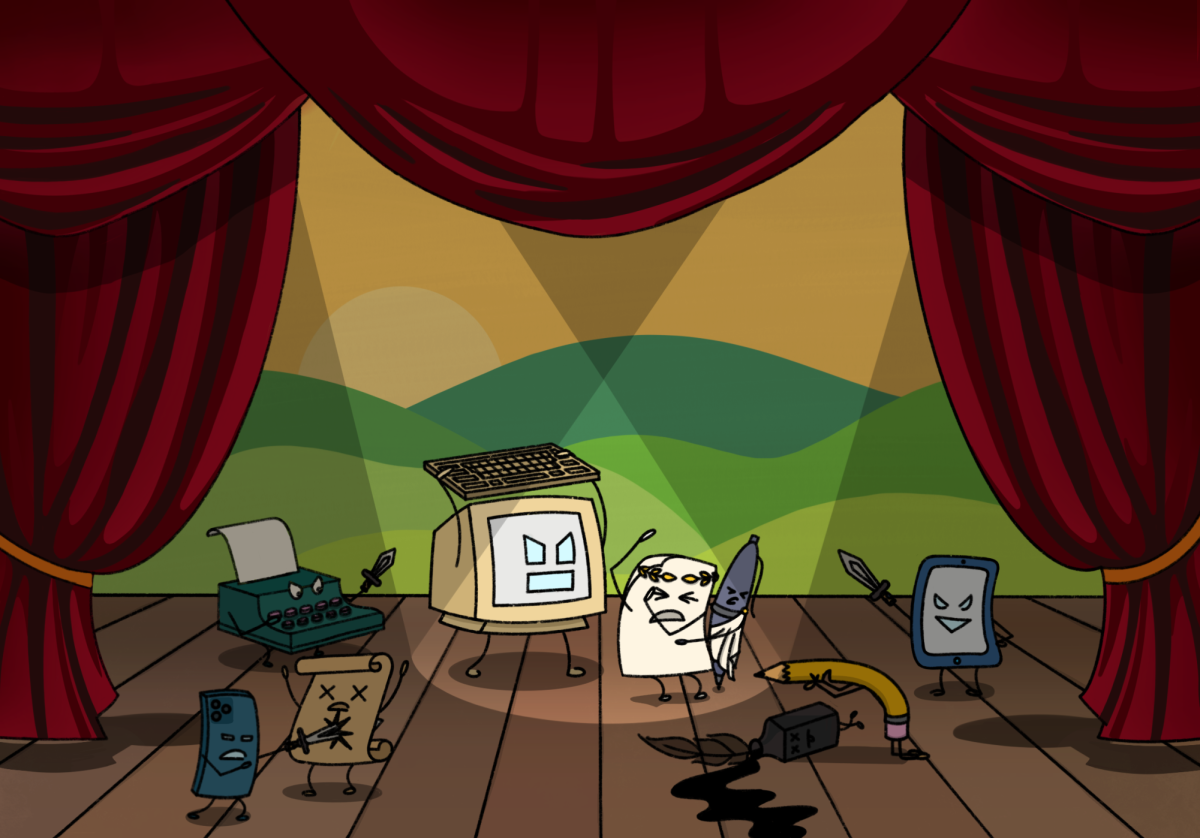Prior to the rise of alternative avenues of obtaining information, the average American’s knowledge was at the whim of newspapers and radio broadcasts intent on giving an unadulterated, objective recap of the news. In the good old days, every word read and heard was taken as gospel, and as a result, people didn’t question scientific authority. Truth was concrete and powerful—not crumbling at the feet of conspiracies, ill-informed hate speech, fake news and polarized attitudes.
These are major problems in our day and age that have without a doubt, been exacerbated by the expansive influence of the internet. However, we can’t idly pass them off them as justification for the suppression of independent media. Instead, it’s pertinent that we recognize them as the necessary evils of maintaining free speech and net neutrality.
Whether or not “fake news” gains further heed hinges on our ability to encourage a society of cognizant individuals surfing the web. Companies like Facebook that possess monopolies on information shouldn’t be obliged to combat this problem, as the content subdued through their methods of attack are often outside the intended blast radius. Sadly, well-meaning journalists and commentators have suffered the collateral damage of media proprietors’ recent endeavors against misleading and inappropriate content.
When advertisements were displayed on YouTube videos that promoted hate speech, countless marketers abandoned the site, fearing unwanted association with such material. Considering these occurrences are negligible relative to the videos most people are watching, this was an overreaction. Nevertheless, that didn’t stop YouTube from cracking down on ad revenue for anything of “controversial” substance, regardless of the context or creator’s purpose.
If someone is driven to share their passionate, informed take on any given issue, amassing a respectable audience is most easily accomplished through platforms like YouTube, where most of the views outside cable television are concentrated. Alas, in the wake of demonetization, even content creators outside of political commentary were pigeonholed into begging for Patreon dollars.
This was YouTube’s naive attempt to target hate speech at best, and a surreptitious ploy to discourage political channels at worst: bolstering a lackluster cable news media against an emerging internet culture. The latter isn’t hard to believe, keeping in mind that the paramount aim of independent YouTube pundits has always been a unified, caustic criticism of the talk-show dialogue heard on MSNBC, CNN and Fox news. Was it pure coincidence that amidst the widespread panic from popular channels being beleaguered by ad blacklists, YouTube TV—the Netflix for cable media—was introduced? This was a clear pushback, especially in a world where skepticism of mainstream authority is a growing trend.
As mainstream media seems determined to carry on a losing battle, it’s fair to say that its pervasive counterpart, social media, also has a hefty load of issues. Facebook is taking a similar demonetization approach, only with fake news. The platform, which profits from stealing other people’s revenue through freebooting, neglects to disclose how it will go about depriving misinformative posts of advertising. This creates ambiguity as to whether or not it will pursue a fair approach to its posts.
Facebook’s third-party committee, which reviews posts flagged as misleading, is admittedly preferable to YouTube’s inept algorithms that invariably punish the wrong content. Nonetheless, fabricated news and intolerance must be discouraged without relying on these companies to do it for us. We, as users, choose to give these domains so much power. If YouTube and politics aren’t compatible, then by all means, let its algorithms stick to recommending music videos. Now is the perfect time to erect a new site for creators who have been left behind by censorship-in-disguise.
Avid news readers and listeners must sacrifice convenience to actively seek out information for themselves. This can and must be achieved by venturing outside of the insular worlds that Facebook has molded by supporting a piece’s original source. Make it standard in schools to teach children how to identify journalistic credibility, ample evidence and possible ways that information has been filtered. If this was just common knowledge, why do we still seeing genuinely misleading sites with inflated viewership?
If the government tried regulating your news feed under the guise of combating false information and hate, there would be a colossal outcry. After all, conventional wisdom tells us not to trust the government with our information, and such wisdom should be applied to corporations as well. Facebook wants to fight fake news, but has fostered echo chambers that capitalize on user bias. This poisons people’s ability to think objectively, which can be just as negative. YouTube is guilty in its own right, having discouraged political comedians, journalists and commentators alike to voice their thoughts by cutting their revenue streams.
These businesses are still within their right to control what they want. What we must realize is that nobody is chained to an approximated, heavily-regulated media trough—the key is producing a world where every person is capable of feeding themselves the right information.









